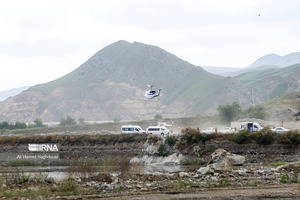President of Uzbekistan Shavkat Mirziyoyev took part in the 10th meeting of the Supreme Eurasian Economic Council in Moscow on 8 May as the head of the observer state.
Chaired by Armenian Prime Minister Nikol Pashinyan, the meeting included the presence of the presidents of Russia, Belarus, Kazakhstan, Kyrgyzstan, and, as the head of an observer state, the president of Cuba.
During his address, Shavkat Mirziyoyev outlined Uzbekistan’s five key priorities for cooperation with the Eurasian Economic Union (EAEU).
He emphasized the importance of supporting and enhancing trade and economic ties, promoting cooperation projects, and facilitating conditions for mutual investments amid global challenges.
President Mirziyoyev highlighted the significant growth in mutual trade turnover by 60% over three years of Uzbekistan’s observer status in the EAEU, primarily driven by increased industrial product supply. He also noted the rising share of settlements in national currencies.
Moreover, the president of Uzbekistan mentioned the launch of over 1,000 joint ventures and projects, along with increasing cargo transportation volume and doubling the frequency of regular flights. He highlighted Uzbekistan’s participation in various sectoral projects and programs, including those related to digitalization of trade and cargo transportation, e-commerce, and climate initiatives.

Uzbekistan’s priorities for cooperation with the EAEU:
1. Uzbekistan is interested in expanding practical partnership and more active participation in the implementation of multilateral projects of sectoral interaction within the strategic directions of EAEU development, Shavkat Mirziyoyev stated.
He proposed to prepare a new comprehensive Plan of joint activities of the government of Uzbekistan and the Eurasian Economic Commission for the medium term.
2. The president reaffirmed readiness for mutual elimination of trade barriers and restrictions with EAEU countries.
He highlighted the initiation of Uzbekistan’s accession procedure to the Rules for Determining the Country of Origin of Goods of 2009.
“Specific practical steps in this direction could include the organization of electronic data exchange on goods and vehicles crossing our customs borders, integration of information systems of sanitary, phytosanitary and veterinary control, adoption of the Plan for the convergence of technical regulation measures and application of electronic certification,” Shavkat Mirziyoyev noted.
3. “It is important to continue a close dialog on the development of the ‘North-South' transport corridor in the direction of the markets in South and Southeast Asia and the Middle East,” continued the head of state.
To simplify transit procedures between the countries, he proposed to develop a set of measures for digital interaction with the Unified Customs Transit System of the EAEU.
4. Uzbekistan intends to continue to actively support industrial cooperation projects and localization programs for high-demand products, Shavkat Mirziyoyev said.
“I propose to develop a separate roadmap in this direction, providing for the placement of new capacities in industrial zones and technoparks jointly created in the regions of our countries,” he said.
Additionally, Uzbekistan is interested in leveraging the potential of a specialized mechanism to support industrial cooperation programs within the EAEU.
5. The president highlighted the importance of establishing systematic work and expanding cooperation with EAEU bodies in such areas as development of the Eurasian Agroexpress, introduction of green and water-saving technologies, support for the creation of joint agro-industrial clusters and logistics centers, development of common approaches and close cooperation to address climate change challenges.
He also stressed the importance of creating “favorable conditions and social guarantees for the activities of migrant workers in our countries, with the connection to digital platforms, the development of joint tourism programs and products aimed at significantly increasing tourist exchange.”





